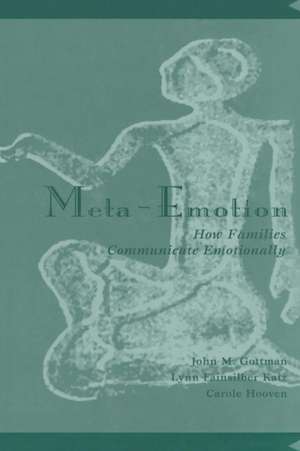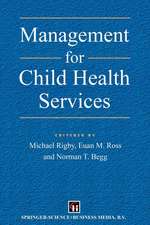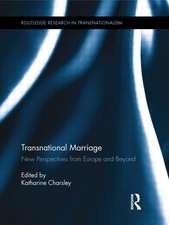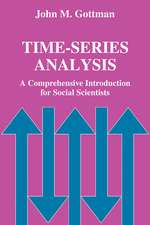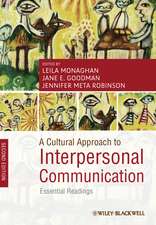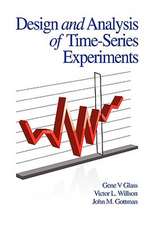Meta-Emotion: How Families Communicate Emotionally
Autor John Mordechai Gottman, Lynn Fainsilber Katz, Carole Hoovenen Limba Engleză Paperback – 1997
| Toate formatele și edițiile | Preț | Express |
|---|---|---|
| Paperback (1) | 593.47 lei 6-8 săpt. | |
| Taylor & Francis – 1997 | 593.47 lei 6-8 săpt. | |
| Hardback (1) | 1238.74 lei 6-8 săpt. | |
| Taylor & Francis – 1997 | 1238.74 lei 6-8 săpt. |
Preț: 593.47 lei
Preț vechi: 624.71 lei
-5% Nou
Puncte Express: 890
Preț estimativ în valută:
113.58€ • 118.14$ • 93.76£
113.58€ • 118.14$ • 93.76£
Carte tipărită la comandă
Livrare economică 15-29 aprilie
Preluare comenzi: 021 569.72.76
Specificații
ISBN-13: 9780805819960
ISBN-10: 0805819967
Pagini: 384
Dimensiuni: 152 x 229 x 20 mm
Greutate: 0.52 kg
Ediția:New.
Editura: Taylor & Francis
Colecția Routledge
Locul publicării:Oxford, United Kingdom
ISBN-10: 0805819967
Pagini: 384
Dimensiuni: 152 x 229 x 20 mm
Greutate: 0.52 kg
Ediția:New.
Editura: Taylor & Francis
Colecția Routledge
Locul publicării:Oxford, United Kingdom
Public țintă
ProfessionalCuprins
Contents: Foreword. Part I: The Emotional Life of Families. Introduction to the Concept of Meta-Emotion. Research on Parenting, and Meta-Emotions. Popular Parenting Guides: Introducing Ginott. Appendix: Life Space Interviewing in More Detail. Part II: Measurement and Conceptualization. The Selection of Developmental Outcomes. The Meta-Emotion Interview. An "Emotion Regulation Theory" of Meta-Emotion, Parenting, and Child Outcomes. Appendix: How Specifically Might Meta-Emotion and Parenting Affect a Child's Development? Appendix: Necessary Concepts From Child Physiology: A Brief Review of Research. Designing a Family Psychophysiology Laboratory: The Methods of Our Study. Appendix: More Detail on Measures and Coding. The Internal Structure of Parents' Meta-Emotions. Validity of the Meta-Emotion Interview. Part III: Parenting, Meta-Emotions, and Child Outcomes. Parenting, Parental Meta-Emotions, and the Child's Peer Relations. Parenting, Parental Meta-Emotions, and the Physical Health and Negative Affectivity of Children. Parenting, Parental Meta-Emotions, and Children's Academic Achievement at Age 8. Part IV: Mechanisms: Process Models, and the Parents' Marriage. How Might Meta-Emotions Have Their Effects? Preliminary Tests of Our Theory. Parenting, Meta-Emotion, and the Parents' Marriage. The Effects of Marital Conflict and Buffering Children From Marital Conflict. Part V: Extensions. Meta-Emotion and Gender. When Parents Feel Emotionally Out of Control. Meta-Emotion, Emotional Expressiveness, and Parental Social Class. Appendix: Vagal Tone and the Inhibition of Expressiveness. Appendix: Child Temperament. Discussion and a Research Agenda. Emotion Metaphors. Appendix: Methodology for the Vagal Tone Computations.
Recenzii
"Comprehensive...the book will be of interest to graduate students and professionals."
—CHOICE
"Qualitative examples and end-of-chapter summaries usefully clarify this work's main statements. The major contribution of the meta-emotion construct is that it tackles challenging issues in the closely interconnected fields of child development and family functioning; this aspect alone merits serious attention from researchers and clinicians.
—Readings
—CHOICE
"Qualitative examples and end-of-chapter summaries usefully clarify this work's main statements. The major contribution of the meta-emotion construct is that it tackles challenging issues in the closely interconnected fields of child development and family functioning; this aspect alone merits serious attention from researchers and clinicians.
—Readings
Notă biografică
John Mordechai Gottman, Lynn Fainsilber Katz, Carole Hooven
Descriere
This book describes research on the emotional communication between parents and children and its effect on the children's emotional development. Inspired by the work, and dedicated to the memory of Dr. Haim Ginott, it presents the results of initial exploratory work with meta-emotion--feelings about feelings. The initial study of meta-emotion generated some theory and made it possible to propose a research agenda. Clearly replication is necessary, and experiments are needed to test the path analytic models which have been developed from the authors' correlational data. The authors hope that other researchers will find these ideas interesting and stimulating, and will inspire investigation in this exciting new area of a family's emotional life.
